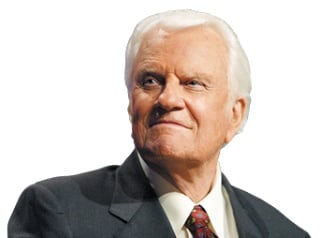Audio Transcript
An interesting question today from Agnes, who writes us about the complexity of Christian emotions.
“Pastor John, I want to begin by expressing my deep gratitude for the work you do and the impact you’ve had on the broader church. Your teachings have been a source of encouragement and guidance to many, including myself. I recently read your book Battling Unbelief, a book you published in 2007, and a particular passage stood out to me. You wrote, ‘Despondency is not a common word today. But I think it captures what I mean. It is not depression per se, because depression connotes a clinical condition in our day. But it is more than simply having a bad day and feeling temporarily gloomy in the evening. Between those two there is a broad terrain of unhappiness where too many Christians live their lives. Beneath much of that experience is unbelief in the future grace of God and its foundation in the person and work of Christ’ (119).
“This made me wonder if your views on this topic have evolved, especially given your personal experiences. I recall you mentioning a season in your life where you were deeply affected by an emotional state that was hard to understand, even to the point of sobbing without clear cause. Reflecting on those experiences, have your thoughts on unhappiness — its roots and how Christians should approach it — changed? Also, looking back at Battling Unbelief, do you still agree with the perspectives you shared, or have your views shifted in light of more recent experiences or understanding? I greatly value your insights and appreciate your time in considering these questions.”
I have to admit that my memory is simply not good enough to know all the ways I have changed over the past fifty years in my thinking. So, let me mention a few ways that I think I have changed in my thinking about happiness and unhappiness in the Christian life, knowing that there may well be others that I don’t remember.
I would mention:
- I have changed particular exegetical views about texts that I didn’t get right.
- I think my emphasis has changed in some regards.
- I think I’ve changed in talking with a little more complexity about that emphasis.
Exegetical Corrections
Here’s an example of the first one, the particular exegetical mistakes that I have made and had to correct. When I wrote Future Grace, from which Battling Unbelief was taken, I misinterpreted 2 Thessalonians 2:13. It goes like this: “God chose you as the firstfruits to be saved, through sanctification by the Spirit and belief in the truth.”
“Both Jesus and Paul insist on the complexity of simultaneous unhappiness and happiness.”Now, one of my main arguments in Future Grace and Battling Unbelief is that belief in the truth (that is, glad trust in God’s promises) is an essential means of sanctification. It’s a central argument in the book, and I use this verse to defend that position because it says we are saved “through sanctification by the Spirit and belief in the truth.” But I was careless, because it is perfectly clear in Greek that “belief in the truth” does not modify “sanctification.” It modifies “to be saved.” It says we are saved through sanctification by the Spirit, and we are saved through belief in the truth.
I didn’t get it right. I was using a text to say something true, but the text didn’t teach it. A student pointed that out to me. (Praise God for students, right?) They said, “But it’s dative, Pastor John, and that goes with . . .” I looked at it and I said, “Oh, my goodness.”
When the second edition of Future Grace came out, we fixed it. You won’t find that mistake in the newer editions. My view of sanctification did not hang on that one verse. We are indeed sanctified by belief in the truth; it says that in Acts 26:18, and I didn’t get that one wrong. Everybody agrees there. But that one verse did not argue for my position. (It didn’t argue against it; it just didn’t address the issue that I was dealing with.)
So, over the years I have had to make some exegetical corrections. Then, besides that, there have been changes in emphasis and complexity. And those two are so interwoven that I think it would be helpful just to take them together.
Emphasis and Complexity
I think it’s fair to say that in the last couple of decades I have increasingly emphasized suffering as part of the Christian life, especially as it relates to happiness in Jesus. And I have increasingly called attention to the complexity of our emotions, as suffering and happiness go hand in hand. I think that’s an emphasis that has increased.
Emphasizing suffering as part of the Christian life has meant drawing attention not only to Jesus being “a man of sorrows and acquainted with grief” (Isaiah 53:3), but especially to Paul’s sorrow, and anxiety, and godly grief, and despairing of life, and anguish of soul, and being afflicted, and crushed, and persecuted, and struck down, and reviled, and slandered, and beaten with rods, and lashed 195 times with whips, and stoned, and going without food, being cold, toiling late at night, experiencing sleeplessness. All of those come straight out of his epistles; I didn’t make any of those up. They’re just stunning, stunning descriptions of pain.
These sufferings are not only objective states of physical pain, which they most emphatically are, but they are emotional states that most people would consider incompatible with happiness or joy or gladness or satisfaction or pleasure or contentment. Most of us grew up (I surely did) thinking that emotional states of misery and emotional states of pleasure happen sequentially. Weeping lasts for the night; joy comes in the morning (Psalm 30:5). First the one, then the other. But what I have been emphasizing in recent years is that both Jesus (in Matthew 5:11–12) and Paul (throughout his writings) insist on the complexity of simultaneous unhappiness and happiness. And it doesn’t help to try to say that the pain isn’t a kind of unhappiness. It doesn’t help to say that the joy is not a kind of happiness. They are.
Happiness in Pain
If you want a contemporary witness to this reality, listen to these words; listen to these unbelievable words. And if they had been written by a twenty-year-old, you’d say, “Well, wait till she lives long enough.” But it’s written by a seventy-two-year-old who’s been paralyzed for fifty years.
Here’s what Joni Eareckson Tada says on page 195 of The Practice of the Presence of Jesus:
I cannot make my heart feel grateful. But there are times when I am lying in bed in miserable pain, I look up and, near tears, whisper, “God, I am so happy.” How is that possible? I do not rejoice in my horrible pain. Far from it. I rejoice in the abundant outpouring of grace that God gives in response to that pain. He hears my plea, sees my yawning need, and fills it with grace that is commensurate to my pain; actually, since he’s so generous, he fills my need to overflowing. The result is that I am stunned and surprised by sheer happiness.
Sheer happiness in miserable pain. Not just after it — in it, she says.
Four Implications
So, I would say the effect this shift of emphasis and complexity has had for me is this. First, it has made me pursue joy as something profound and miraculous and real and deeply different from almost all the silly, big-smile kind of happiness you see in entertainment and advertising, and tragically in many evangelical worship services.
Second, the change in emphasis has caused me to focus more on the all-satisfying glory of Jesus, the way Paul speaks about it in Philippians 3:8, and on the fact of hope as a huge essential for Christian joy. “We rejoice in [the] hope of the glory of God” (Romans 5:2).
Third, this change has caused me to return again and again to the absolute sovereignty of God to split the Red Sea of hopelessness that we see in front of us again and again.
And finally, this change in emphasis has caused me to see Christianity increasingly as a very radical thing and has made me more than ever not want to play religious games as I approach eternity.

.jpeg)













.jpeg)













 English (US) ·
English (US) ·